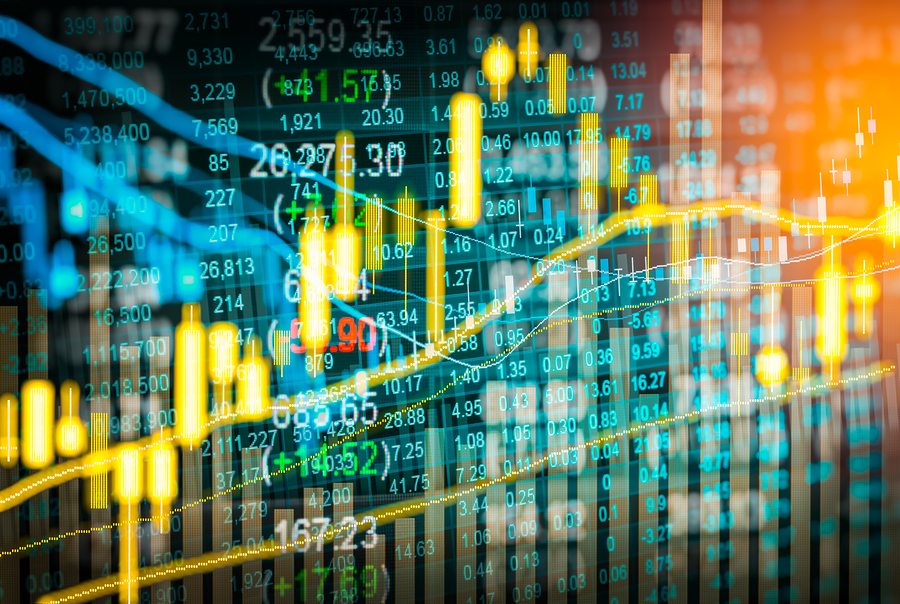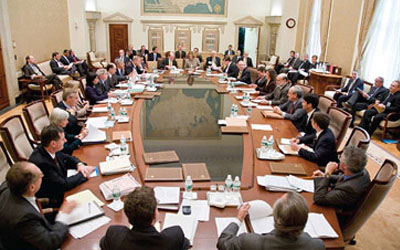
The coronavirus outbreak has had an enormous impact on the global stock exchange market, causing sharp price falls, and hundreds of billions wiped off values of indexes.
According to data gathered by BuyShares, the market cap of the world’s five largest stock exchanges dropped by $1.3trn in the first quarter of 2020, falling from $52.05trn in January to $50.75trn value in March.
New York Stock Exchange Reached $25.5trn Value in March
As the leading stock exchange market in the world, the New York Stock Exchange was valued at $22.9trn in January, revealed Statista and World Federation of Exchanges data. By the end of the March, the equity market capitalization of New York’s leading stock exchange rose by $2.9trn, reaching $25.5trn value.
With $410.7bn in market cap, the Berkshire Hathaway Inc. represents the highest-priced stock listed in New York and globally. In January, the stock price of one of the largest companies in the world peaked at more than $345,000 value. By the end of the first quarter of the year, this value plunged to $240,000, almost 45% drop in three months. At the end of the last week, the Berkshire Hathaway stock price stood at over $262,800.
Johnson& Johnson ranked as the second most valued company listed in New York, with $380.2bn in market cap as of May. The Black Monday caused a sharp drop in the company’s stock price, falling from $149.9 in February to $111.14 on March 23rd. Statistics show the Johnson $Johnson stock price stood at $144.3 at the end of the last week.
JP Morgan Chase ranked as the third most valued company listed on the New York Stock Exchange with $276.9bn in market cap as of May. During the coronavirus outbreak, the value of one of the largest banks globally dropped by more than 40%, falling from $425.6bn in February to $244.6bn on March 23rd.
Value of Top 3 Nasdaq Companies Halved Amid Coronavirus Outbreak
At the beginning of the year, the world’s second-largest stock exchange Nasdaq reached $13.2trn value. Statistics show that by the end of the first quarter of 2020, this figure fell to $11.2trn.
As the three largest companies listed on Nasdaq, Microsoft, Apple, and Amazon witnessed a massive drop in their market cap value amid coronavirus outbreak. At the end of February, the combined market cap of the three companies stood at $3.8trn. By the end of March, this value halved to $1.9trn.
Statista data revealed that, as the third-largest stock exchange globally, Japan Exchange Group lost almost $1trn in value in the first quarter of the year, with the market cap falling from over $6trn in January to more than $5trn at the end of the March.
Shanghai Stock Exchange and Hong Kong Exchanges have witnessed an $835bn drop in their combined market cap, falling from $9.7trn value in January to $8.9trn at the end of the March.
A week to forget
End of February and early March started the global panic. During these early days of the pandemic, Global stocks markets faced their worst weeks since the financial crisis of 2008. The Dow Jones Industrial Average, S&P 500 Index, and the NASDAQ-100 all fell into a correction on 27 February. Markets over the following week (2–6 March) became extremely volatile, with swings of 3% or more being made per daily session (except for 6 March). On 9 March, all three Wall Street indices fell more than 7% and most global markets reported severe contractions. A day that most economists refer to Black Monday.
Three days after Black Monday there was another drop, Black Thursday, where stocks across Europe and North America fell more than 9%. The FTSE MIB of the Borsa Italiana fell nearly 17%, becoming the worst-hit market during Black Thursday. Despite a temporary rally on 13 March (with markets posting their best day since 2008), all three Wall Street indexes fell more than 12% when markets re-opened on 16 March. At least one benchmark stock market index in all G7 countries and 14 of the G20 countries have been declared to be in bear markets.
On Monday, 16, stock markets slumped again, with the Dow losing close to 13% and the S&P 500 falling almost 12%, marking the biggest one-day falls for both indexes since “Black Monday” in 1987. In fact, in the last month, the Dow Jones Industrial Average has racked up the five biggest one-day points falls in its 135-year history. In March alone the index has also seen its four biggest one-day points gains on record. Wall Street’s so-called “Fear Gauge” has just topped the levels seen during the financial crisis more than a decade ago. The Chicago Board Options Exchange’s VIX, a measure of stock market volatility, surged by almost 43%, surpassing the level seen in 2008.
European markets entered bear market territory, dropping more than 6% across the continent. It has been a volatile few weeks. Britain’s FTSE 100 is being called down 7.7% in the worst day, again, since 2008. We’ve not seen such a severe loss since the aftermath of Lehman Brothers’ collapse a decade ago.
The apparently unstoppable spread of the coronavirus crisis, and the eruption of an oil price war between Saudi Arabia and Russia, have triggered a massive wave of selling, which has plunged stock markets worldwide into a full-blown bear-market. In the case of major European markets, these events have wiped 20% off their recent peaks.
“Markets were heading for a fall after a reckless few years, but what started as a classic “bear” plunge can drive a fall in global demand, stalled investment and unemployment. At this point, the world faces something new,” commented Simon Jenkins. Most recessions have confined themselves to one continent or two. But globalisation – particularly the rise of China – has seen trade, migration and tourism dissolve national, even continental, borders. As airlines and factories close down round the world, the oil price plummets to half its peak.
Fear is a strong emotion, and it seems to have spread across markets and economies around the world, at an even faster rate than the coronavirus is expanding in countries. But what we’re learning – in real-time, Darwinian fashion – out of this is that “proactive countries, societies and individuals are performing far better than reactive ones. Governments that engage in truth-telling are heading off dangers faster than those that obfuscate or delay,” was said by Frederick Kempe, a best-selling author, prize-winning journalist and president & CEO of the Atlantic Council. In the same context, the expert pointed out that we were also reminded of the benefits of international collaboration and trust – and the dangers where it doesn’t exist – both in addressing health emergencies and their global financial implications.
Tradersdna is a leading digital and social media platform for traders and investors. Tradersdna offers premiere resources for trading and investing education, digital resources for personal finance, market analysis and free trading guides. More about TradersDNA Features: What Does It Take to Become an Aggressive Trader? | Everything You Need to Know About White Label Trading Software | Advantages of Automated Forex Trading





































